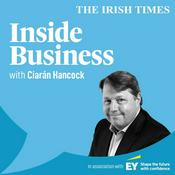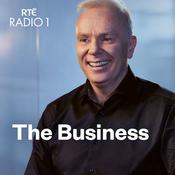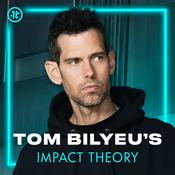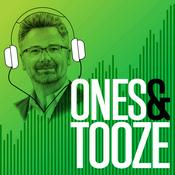The Leadership Podcast
Jan Rutherford and Jim Vaselopulos, experts on leadership development

Latest episode
508 episodes
- Oli Raison, co-founder of Safarini Leadership, designs immersive leadership expeditions in Kenya that combine cultural exchange with Samburu elders, wilderness trekking, and deep reflective coaching. In this conversation, Oli challenges one of leadership's most entrenched assumptions: that resilience is about individual grit and mental toughness. Drawing on the Samburu concept of naboisho—interdependence—he shows how real resilience is built through collective support, not solo endurance. He also names the single most important question leaders need to ask when entering any new culture or organization: What assumptions am I making? The catch? Most assumptions are invisible to us because they feel like "normal." Oli also explores why many wilderness and offsite leadership experiences fail to create lasting change, and shares his solution: a three-phase transformation framework—preparation, immersion, and integration—shaped by the work of past podcast guest, Joe Pine. This episode is an invitation to question your cultural defaults, rebuild genuine human connection, and develop a healthier relationship with time—so your leadership, and your team's resilience, can actually endure. Find episode 498 on The Leadership Podcast, YouTube, or wherever you get your podcasts! Watch this Episode on YouTube | Oli Raison on Why Grit Isn't Enough: Rethinking Resilience in Leadership https://bit.ly/TLP-498 Key Takeaways [04:12] Oli says the leadership assumption consistently dismantled his resilience—the Samburu are resilient through interdependence called "naboisho," not grit. [07:00] Oli identifies profound learning as the importance of having a shared sense of purpose and a very strong shared set of values. [08:31] Oli responds that people have very different expectations of leadership in different cultures around the world. [10:11] Oli reveals the Samburu doesn't have words for anxiety or depression and you'll certainly never meet somebody who knows somebody who committed suicide. Oli notes loneliness is now as damaging for your health as smoking 15 cigarettes a day. [12:00] Oli responds I think too much comfort can be a bad thing and people get discombobulated easily if things don't go quite to plan. [14:35] Oli answers the critical question leaders should ask: what assumptions am I making? Because we don't realize we're making assumptions. [17:07] Oli explains African societies have a fundamentally different understanding of time where there's always enough time. [20:10] Oli explains the Samburu are very spiritual people connected with their ancestors and you're also connected with your descendants. [22:30] Oli says mindset adjustment happens organically from just being offline during 10-day expeditions with six days of camel-supported trekking. [24:53] Oli describes their three-phase structure: preparation, immersion, and integration with coaching sessions at two, four, and six weeks after. [29:20] Oli responds his long-term impact is about flourishing, particularly helping men dealing with anxiety, depression, and suicidality. [31:43] Oli states his aspiration: how can we create workplaces, organizations and teams that flourish? Because that's when people really do their best work. [33:45] Jan shares his realization about keeping fingers on the keyboard versus closing the laptop because the most important thing is that person in front of you. [35:56] And remember..."One way to get the most out of life is to look upon it as an adventure." - William Feather Quotable Quotes "The Samburu, what makes them so resilient is this concept of interdependence, this reliance, this collective reliance on one another...if my cattle get wiped out because of a really challenging drought, I know that my neighbors are going to step in and they're going to give me some of their cattle." "Naboisho is a word in their language which kind of roughly translates to coming together or unity. And they often say things like 'we are because they are,' that we are all sort of in this together." "This is a society that doesn't have words for anxiety or depression. And you'll certainly never meet somebody who knows somebody who committed suicide...loneliness is now as damaging for your health as smoking 15 cigarettes a day." "In the west, we think of time as a commodity. We think of time as something that can be saved, it can be wasted, it can be lost. And as a result of that, I feel that time is the master of us and we are not the master of time." "The Samburu always say there's always enough time because they don't think of time as this continuous thing...time occurs when events happen, it's more relational and it's more eventful." "What assumptions am I making? And this is tricky, right, because a lot of the time we don't realize we're making assumptions." "We don't need to be experts, but we do need to be detectives...what assumptions am I making that might be getting in my way?" "All of this technology is actually causing our brains to operate on a frequency that is not conducive with creative thought at all. And by being in nature, just that alone creates an environment for people to have some really powerful insights." "I think one of the things that people come away with is I really need to take more time out to just contemplate and to think. You know, think about your business, think about your life. We don't take time to think anymore. We're just reacting." "This obsession with hyper productivity is actually just, again, it's all distraction, you know, it's taking us away from just being with ourselves in the moment or being with somebody else." "In 1990, the average man had five close friends and now he has one...every minute that we spend on a device, on a phone, on a laptop, thinking that we're connecting is a minute that we're not spending really connecting with somebody." Resources Mentioned The Leadership Podcast | theleadershippodcast.com Sponsored by | www.darley.com Rafti Advisors. LLC | www.raftiadvisors.com Self-Reliant Leadership. LLC | selfreliantleadership.com Oli Raison LinkedIn | www.linkedin.com/in/oli-raison-1107aa11/ Safarini Leadership Website | www.safarinileadership.com Safarini Leadership LinkedIn | www.linkedin.com/company/safarini-leadership Safarini Leadership Instagram | @safarinileadership
- Geoff Woods is founder of AI Leadership and #1 international bestselling author of The AI Driven Leader: Harnessing AI to Make Faster, Smarter Decisions. In this episode, Geoff introduces the CRIT framework: "Context, Role, Interview, Task." He also reveals why most leaders are still acting like industrial workers—showing up on time, following orders, doing repetitive tasks—when machines now do that work better than humans. He shares his CRIT framework for turning AI into your most valuable thought partner and explains why AI isn't replacing your job. Geoff demonstrates how to collapse three months of work into 30 minutes, shares a painful leadership lesson, and breaks down why 99% of AI use cases are distractions from the 20% that actually drives results. Discover practical strategies for making faster, smarter decisions, getting AI to ask YOU the right questions instead of the other way around, and reclaiming what makes you uniquely human in an AI-driven world. Find episode 497 on The Leadership Podcast, YouTube, or wherever you get your podcasts! Watch this Episode on YouTube | Geoff Woods on Why Most Leaders Are Using AI Wrong—and How to Fix It https://bit.ly/TLP-497 Key Takeaways [03:04] Geoff recounts pushing for a 250x revenue goal three months ago that "actually broke the team" and caused a key leader's resignation. [07:02] Geoff responds to whether "AI-enhanced" is better than "AI-driven" by saying leaders who don't use AI "are at a severe disadvantage." [10:21] Geoff explains his mindset as a family man first is rooted in "the questions you ask yourself determine your fate." [13:53] Geoff reveals the most common self-deception in leaders: "They put more focus on having the right answer than having the right question." [19:26] Geoff walks through applying the CRIT framework to Jim's niece Yvonne's question about AI for client lifecycle management. [26:31] Geoff says the missing link between reading the book and transformation is simple: "Whether they actually applied it." [28:16] Geoff explains decision-making isn't just go/no-go but asks three questions: "What's the upside? What's the downside? Am I willing to live with the downside?" [34:03] Geoff shares his controversial belief in extreme 80/20: "If it's not a 20% priority driving 80% of impact, then why are we wasting oxygen on it?" [39:17] Geoff's closing thought: "You are not what you do" and realizing this means "AI can only enhance you because it can never replace you." [42:27] And remember… "In any moment of decision, the best thing you can do is the right thing. The next best thing you can do is the wrong thing. And the worst thing you can do is nothing." – Theodore Roosevelt Quotable Quotes "I don't ask AI questions. I make AI ask me questions. That's the core difference between me and everybody else." "Most people spend their career majoring in the minors. Nobody got promoted for being the best email checker in their company." "You are not what you do. The moment you realize what you do is not who you are, you start asking better questions." "If you want to 10X your growth, you've got to stop doing 80% of what you currently do and reinvest that effort into higher capabilities." "The questions you ask yourself determine your fate. They determine how you see the world." "I believe the purpose of a goal is not to achieve a result. It's to be a compass to inform who you can become." "Throughout history, technology has made the value of certain skills skyrocket and the value of certain skills plummet." "AI is not going to take your job. But somebody who knows how to use AI as a thinking partner absolutely will." These are the books mentioned in this episode Resources Mentioned The Leadership Podcast | theleadershippodcast.com Sponsored by | www.darley.com Rafti Advisors. LLC | www.raftiadvisors.com Self-Reliant Leadership. LLC | selfreliantleadership.com Geoff Woods Website | https://www.aileadership.com/ Geoff Woods X| @geoffwoods Geoff Woods LinkedIn | www.linkedin.com/company/ai-thought-leadership
- Mark van Rijmenam is a futurist, award-winning keynote speaker globally ranked as number one in his field. Salesforce recognizes him as a leading voice in AI. His latest book, Now What: How to Ride the Tsunami of Change, is available now, and he's the founder of FutureWise. In this episode, Mark challenges the assumption that faster change requires faster action. He argues that organizations moving at breakneck speed with AI and emerging technologies often skip the critical step: pausing to think about consequences. Mark introduces his three E's framework—educate, experiment, execute—as a systematic approach for leaders navigating exponential technological convergence. He emphasizes that while root knowledge becomes obsolete, skills like adaptability, strategic foresight, digital literacy, and ethical grounding become essential for building resilience in uncertain futures. In this episode, you'll discover how to lead through exponential change without losing your humanity, your judgment, or your competitive edge. Find episode 496 on The Leadership Podcast, YouTube, or wherever you get your podcasts! Watch this Episode on YouTube | Mark van Rijmenam on Why Faster Change Doesn't Mean Faster Action https://bit.ly/TLP-496 Key Takeaways [02:14] Mark circumnavigated Australia on bicycle in 100 days, raising $25,000 for Dutch children's cancer fund. [04:19] Mark said the most important starting point is becoming aware and educating yourself on all emerging technologies, not just AI. [08:19] Mark explained we discover AI rather than invent it, so we need to slow down and think instead of rushing forward. [14:46] Mark's digital twin can be WhatsApp'd 24/7 in 29 languages to answer deeper questions about his book. [16:17] Mark hopes in 10 years leaders will ask "how could we have been so stupid to move so fast?" [19:42] Mark recommends the three E's framework: educate, experiment, then execute what works best. [21:52] Mark insists leaders must understand technology implications or they'll dismiss great ideas they don't understand. [25:15] Mark said we need authentic human leaders because a machine-run society would be efficient but unpleasant. [29:51] Mark hopes technology convergence will foster humility and help us live in tandem with nature. [36:58] Mark said focus on analytical skills, adaptability, foresight, digital literacy, ethics, creativity, and collaboration. [39:07] And remember..."Our intuition about the future is linear. But the reality of information technology is exponential, and that makes a profound difference. If I take 30 steps linearly, I get to 30. If I take 30 steps exponentially, I get to a billion." - Ray Kurzweil Quotable Quotes "Leadership today in this fast changing world is different from leadership yesterday. The world of yesterday is no longer." "We don't invent AI, we discover AI. And that is a completely different perspective that has a big effect on everything that we do." "A lot of the big tech companies don't even understand the LLMs that they're building. They don't understand how they operate, which is really problematic." "Critical thinking is under siege because of these large language models, but we still need to think ourselves." "It's a bit of a paradox. You think you need to move faster and faster because the world is changing faster and faster. But you also need to build in moments to pause and reflect." "It's nice to be the first to market, but often it also comes with all the R&D and all the problems. Sitting back a little bit longer will help you move faster in the end." "Static knowledge is sort of dead. We need to have dynamic interactions." "AI and capitalism is a perfect storm where they really feed into each other." "If we don't educate people how to leverage AI, how to deal with AI, they might think it cares about you." "If we're going to end up in a society that's run by machines, it will be a very not pleasant society to live in." "We are social animals. We need that social interaction." "History doesn't repeat itself, but it certainly rhymes." "Continually running faster and faster to grab more and more money might not be the best solution in the world where we built extremely powerful tools." "Root knowledge is sort of becoming out of date because you can just look up with the click of a button." "You're not going to have one career anymore. You're going to have multiple careers in your lifetime and potentially even have multiple careers at the same time." These are the books mentioned in this episode Resources Mentioned The Leadership Podcast | theleadershippodcast.com Sponsored by | www.darley.com Rafti Advisors. LLC | www.raftiadvisors.com Self-Reliant Leadership. LLC | selfreliantleadership.com Mark van Rijmenam website | www.thedigitalspeaker.com Mark van Rijmenam X | @vanrijmenam Mark van Rijmenam LinkedIn | http://linkedin.com/in/markvanrijmenam
- Patrick Veroneau is CEO of Emery Leadership Group and author of The Leadership Bridge: How to engage your employees and drive organizational excellence and The Missing Piece: What Great Teams Do That Others Overlook. In this episode, Patrick explains why organizations' increasing focus on accountability systems over the past five years has coincided with employee engagement hitting a 10-year low. He reveals the accountability paradox: the harder you push for accountability, the further you get from ownership. Patrick discusses why leaders fall short in closing the gap between intention and impact—we intellectually understand leadership concepts, but fail to apply them consistently. Patrick explains the sequence that moves teams from compliance to genuine commitment (support → celebrate → own), reveals the invisible habit great teams practice (recognizing progress along the journey, not just outcomes). If you're tired of accountability systems that aren't working and want to build real ownership on your team, this episode will change how you lead. Find episode 495 on The Leadership Podcast, YouTube, or wherever you get your podcasts! Watch this Episode on YouTube | Patrick Veroneau on The Accountability Paradox https://bit.ly/TLP-495 Key Takeaways [02:57] Patrick said growing up in a large family made him more intuitive because he was always around older people having adult conversations. [04:43] Patrick explained that leaders fall short because they intellectually understand concepts but don't apply them consistently or model the behaviors they expect. [06:58] Patrick shared that social exclusion triggers the same brain response as physical pain, and unexpected recognition spikes dopamine while unrecognized effort decreases it. [11:47] Patrick revealed the accountability paradox: average teams focus on accountability first, but great teams support and celebrate first to create ownership. [14:25] Patrick shared Stephen Covey's insight that leaders need to trust other people first, not wait for others to trust them. [17:32] Patrick said the invisible habit of great teams is celebrating progress along the way, not just the final outcome. [21:34] Patrick said companies that aren't flexible on remote work will be at a disadvantage, but connection must be intentional and meaningful. [26:49] Patrick shared that Rear Admiral Cutler Dawson's success came from "walking the deck plates"—connecting with people at all levels, not his authority. [33:24] And remember..."Leadership is not about a title or a designation. It's about impact, influence and inspiration. Impact involves getting results, influence is about spreading the passion you have for your work, and you have to inspire teammates and customers." - Robin S. Sharma Quotable Quotes "Don't settle for accountability. It's the low bar. Shoot for ownership." "To be on a great team, you have to first commit to being a great teammate." "Average organizations focus on accountability first. Great teams support and celebrate first, then create ownership." "We need to trust other people first. You need to give before you get." "When people feel they should be recognized and aren't, their dopamine levels go down. That's what we experience as disengagement." "Accountability is included in ownership. But not the reverse." "Humility is the circuit breaker on overconfidence." "Walking the deck plates—connecting with people at all levels. We've overcomplicated what it means to lead." "If you don't commit first to being a great teammate, you absolutely won't be part of a great team because you're the weakest link." "Look for work, look for stuff to do, look where you can help." These are the books mentioned in this episode Resources Mentioned The Leadership Podcast | theleadershippodcast.com Sponsored by | www.darley.com Rafti Advisors. LLC | www.raftiadvisors.com Self-Reliant Leadership. LLC | selfreliantleadership.com Emery Leadership Group Website | www.emeryleadershipgroup.com Emery Leadership Group Facebook | www.facebook.com/profile.php?id=100063653920372 Patrick Veroneau LinkedIn | www.linkedin.com/in/patrick-veroneau Patrick Veroneau Instagram | @patrickveroneau
- Mark Steffe is President and CEO of First Command Financial Services, bringing over 30 years of financial services leadership. In this episode, Mark explains why he left his dream job working with ultra-high-net-worth families to serve military members who truly need financial guidance. He shares how military families face unique challenges including frequent relocations, spouse underemployment, and modest pay, requiring advisors who understand their sacrifices. Mark demonstrates how building trust and psychological safety enables difficult financial conversations, comparing financial advisors to doctors who need honest patient information. He outlines his quality control approach for serving the tight-knit military community, emphasizing mission alignment, compliance-first culture, and protecting reputation. Discover practical strategies for leading with mission over metrics, building trust for difficult conversations, and coaching teams to improve rather than simply demanding better results. Find episode 494 on The Leadership Podcast, YouTube, or wherever you get your podcasts! Watch this Episode on YouTube | Mark Steffe on When Leadership Is About Who You Serve https://bit.ly/TLP-494 Key Takeaways [04:06] Mark explains he left ultra-high-net-worth services because he wanted to change lives, not just help wealthy people get wealthier. [07:26] Mark reveals how much military families sacrifice, putting our interests and safety ahead of their own. [11:34] Mark notes COVID year one was easier as crisis mode, but year two's transition back proved harder. [14:34] Mark explains First Command uses AI for exponential growth without adding employees, upskilling workers instead. [17:27] Mark credits Simon Sinek's "Start with Why" for emphasizing communicating the why, not just what and how. [21:54] Mark reframes the financial mess as reflecting "how busy you've been taking care of everybody else," not personal failure. [27:42] Mark outlines quality control requires mission-aligned hiring and rejecting the false choice between profitability and compliance. [33:13] Mark tells his "throw strikes" story: His son didn't need parents yelling commands, he needed a coach to fix his mechanics. [38:52] And remember..."Knowledge will forever govern ignorance; and a people who mean to be their own governors must arm themselves with the power which knowledge gives." - James Madison Quotable Quotes "Our job was to help wealthy people get wealthier. I wanted to change lives instead." "If Jack's not throwing strikes, he doesn't need someone to yell at him to throw strikes. He needs the coach to walk out to the mound and help him adjust his mechanics." "If employees aren't performing at the level you need, it's not because they don't want to. They don't know how yet." "What became an accommodation for concern of people's health and safety became an entitlement." "We can either be profitable or we can be compliant. The answer is always AND—we have to be profitable AND we have to be compliant." "Early in your career you get promoted for what you do. Later, it's how you lead, how you communicate, how you paint a vision." "Your messy finances are a reflection of how busy you've been taking care of everybody else, not personal failure." "If you take care of your clients and do the right thing for them, the profits will show up." These are the books mentioned in this episode Resources Mentioned The Leadership Podcast | theleadershippodcast.com Sponsored by | www.darley.com Rafti Advisors. LLC | www.raftiadvisors.com Self-Reliant Leadership. LLC | selfreliantleadership.com Mark Steffe Website | www.firstcommand.com Mark Steffe LinkedIn | www.linkedin.com/in/mark-steffe Below are two articles from Mark about his leadership philosophy and communication strategies and the financial challenges facing military families and the importance of financial advisors. ● https://medium.com/authority-magazine/impactful-communication-mark-steffe-of-first-command-financial-services-inc-on-5-essential-e60d3e4855f7 ● https://usveteransmagazine.com/usvm/helping-military-families-overcome-historic-money-struggles/
More Business podcasts
Trending Business podcasts
About The Leadership Podcast
We interview great leaders, review the books they read, and speak with highly influential authors who study them.
Podcast websiteListen to The Leadership Podcast, The Diary Of A CEO with Steven Bartlett and many other podcasts from around the world with the radio.net app

Get the free radio.net app
- Stations and podcasts to bookmark
- Stream via Wi-Fi or Bluetooth
- Supports Carplay & Android Auto
- Many other app features
Get the free radio.net app
- Stations and podcasts to bookmark
- Stream via Wi-Fi or Bluetooth
- Supports Carplay & Android Auto
- Many other app features


The Leadership Podcast
Scan code,
download the app,
start listening.
download the app,
start listening.





































